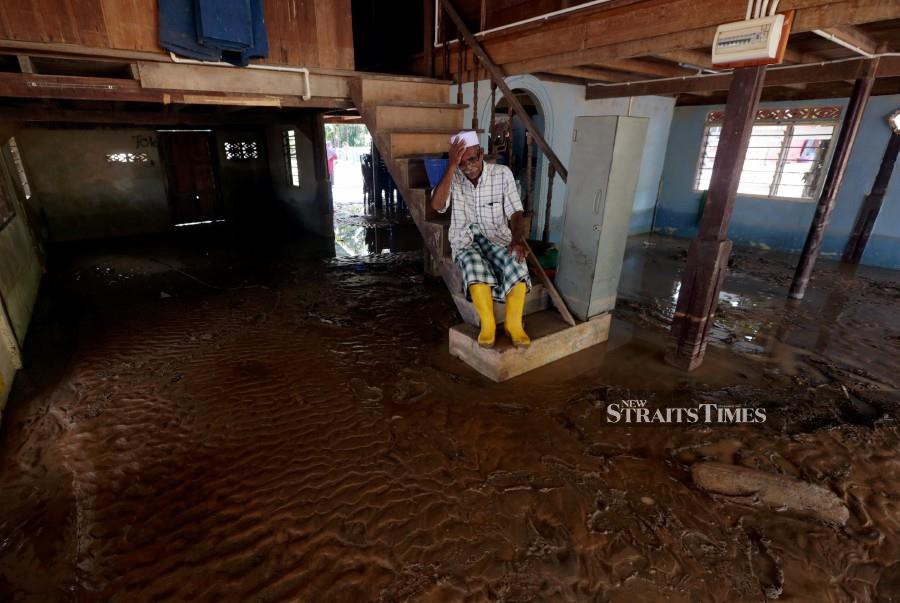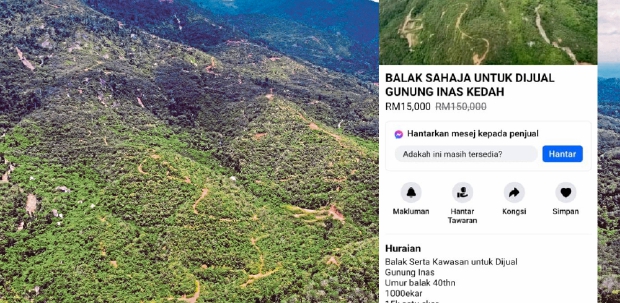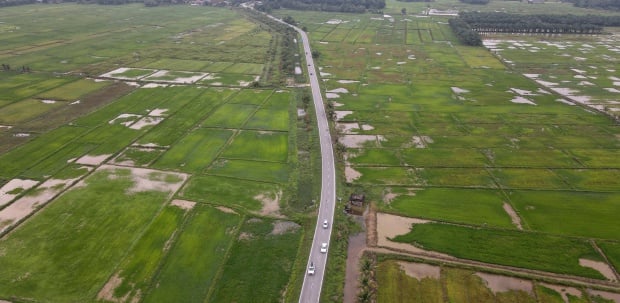THE floods have struck again. The poor souls in nine villages in Baling's Kupang sub-district are wringing their hands in despair over Thursday's floods, which displaced some 300 residents, many of whom are now in evacuation centres again.
Lamenting that their lives are in danger and pleading for immediate solutions, they have vowed to move out from the disaster-prone area. Can we blame them? Their plight is a pertinent call to the authorities to prevent the recurrence of floods that have affected their lives and livelihoods.
Earlier this month, floodwaters swept through 12 villages and a Musang King project on Gunung Inas is being blamed. It was the worst flood ever recorded in Kupang. And if that is not enough, there is another disaster in the making — that of forest and highland areas being cleared for farming. The rape of Lojing Highlands in Gua Musang, in particular, by farmers found to be in violation of environmental regulations, is a stark revelation.
This can't go on. Certainly, global hunger has fuelled the need for more agricultural activities, but it does not justify allowing farming and durian plantations to thrive without regulations or a proper environmental assessment report. It's ludicrously negligent. Why? Because agriculture can also contribute to climate change when forests and hills are cleared to make way for plantations.
In 2019, a special report by the United Nations Intergovernmental Panel on Climate Change highlighted how the way we have been using land was affecting the planet. The report — on climate change, land degradation, sustainable land management and food security — explained that forests were natural ecosystems that served as carbon "banks", which absorb carbon dioxide from the atmosphere.
When such ecosystems are cleared for plantations, the land loses its ability to capture and store carbon dioxide, and planet-warming emissions are released. In layman's terms, there is nothing to protect the land, unless there is sustainable land management which can help reduce the impact of climate change and other pressures on the ecosystems like floods and droughts.
What now? More recriminations? The blame game must stop and solutions must be found. "Malaysia has already lost vast tracts of rainforest to a thriving trade in wood and palm oil", as reported by the Thomson Reuters Foundation; let's not lose more land to unnecessary farming, logging and durian plantations.
True, the government is working on reforming the country's forestry and land laws to better protect its forests and highland areas, following global scrutiny of alleged mass logging and mismanagement of oil palm plantations. But more, much more must be done. This Leader had in the past said that we have to accept the climate is changing, but there are "variables" that can be manipulated, such as drainage, the environment and other flood mitigation measures.
Let's do that — controlled agricultural activities, stringent enforcement to prevent the recurrence of floods and harsher penalties against those who violate environmental regulations when farming. Take heed, too, of environmentalists who have called on the government to set up a public commission of inquiry on the Baling floods.
They also said the government should learn from mistakes with the palm oil industry when encouraging durian planting, and proposed that instead of durian trees in forest or highland areas, farmers should be encouraged to replace older palm trees with durian and plant a variety of crops.





